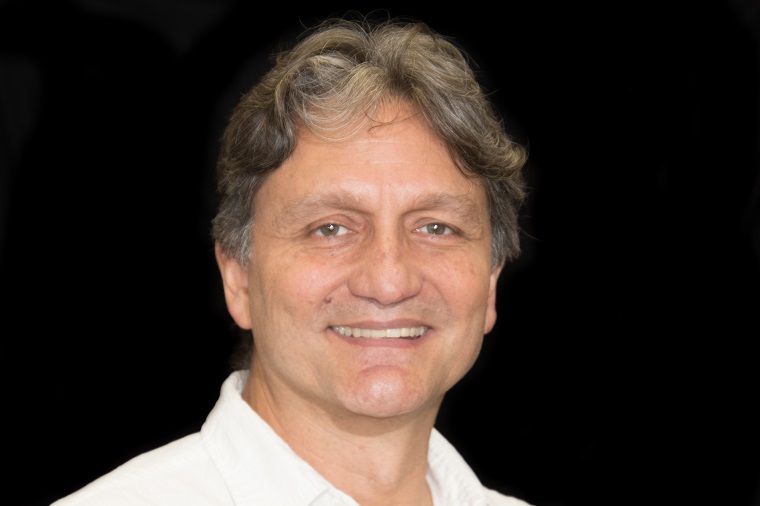
Luis Paiz Bekker, AFSC Latin America and Caribbean regional director Don Davis / AFSC
Q: What drew you to AFSC?
A: I’ve had the privilege of working with indigenous peoples in several countries. When I was studying to become a physician, I struggled with the western approach that often views these communities as the problem instead of recognizing their strengths and skills and learning from them. I recognized early on the need to decolonize our thinking.
When I read AFSC’s mission, it was the first time I saw an organization write about a decolonizing approach to its work. People are seen as equals. We’re not in a powerful position and helping those who need our support. At AFSC, you put your faith into action and must be humble enough to be ready to be transformed yourself.
AFSC sees the light in every human being, which is especially important now as we face this civilization crisis. And we are facing a civilization crisis, not just a political social problem. AFSC’s vision of shared security means that we are all in the same boat and we must work together for the good of all.
Q: What are some of the challenges that people face in the Latin America and Caribbean region that compel many to leave their native countries?
A: You will find a huge amount of reasons people migrate – different aspirations and dreams. Basically, it’s people trying to survive and find a better life.
The threat of physical violence – from gangs or in domestic situations – is a very common reason. Climate change, which is a global issue, has contributed to the destruction of crops for many farmers, making it hard to support themselves.
But the underlying cause is structural violence. What I mean by that is people have no opportunity whatsoever. In countries that expel large numbers of people, you often find different expressions of the neoliberal system that have been manipulated to benefit a few – not the majority. Most people do not have their basic needs met, hospitals don’t have enough resources, there’s no education or opportunities for young people – this is all structural violence.
Migration has been happening for 500 years in the region, but not at the levels we’re seeing now because of the unprecedented concentration of wealth and power.
Q: At the same time, the Trump administration has implemented anti-immigrant policies like criminalizing people entering the U.S. or forcing people to remain in Mexico while applying for asylum.
A: Yes, and these policies are failing because they’re designed to keep people from entering – not addressing the roots causes of why they migrate. We have to provide these people with asylum and basic resources. If people have the resources they need, they have more opportunities to actively engage in society, no matter where they are.
Q: What are some ways that AFSC works to address root causes of migration?
A: We’ve provided humanitarian aid and human rights monitoring to migrant caravans to help ensure their protection as they travel north. We also bring together organizations and networks working on migration issues.
We’re lobbying governments in capital cities, helping to bring the voices and stories of migrants to policymakers. And we’re in communities, working directly with young people to see alternatives to violence. We help them develop leadership skills and express themselves through art and planning projects to help their communities.
Recently I was in Haiti in an extremely poor area called Cite du Soleil, where I met young people who were creating a library. Other organizations joined the effort, and the municipality gave them a space where they could meet, talk, and dance.
The young people told me it’s a place where they could find joy in their own identities and make decisions about their own futures. That joy spreads to their parents, their neighbors, their community. You see the very powerful effect on people when they not only avoid violence but find ways to transcend it.